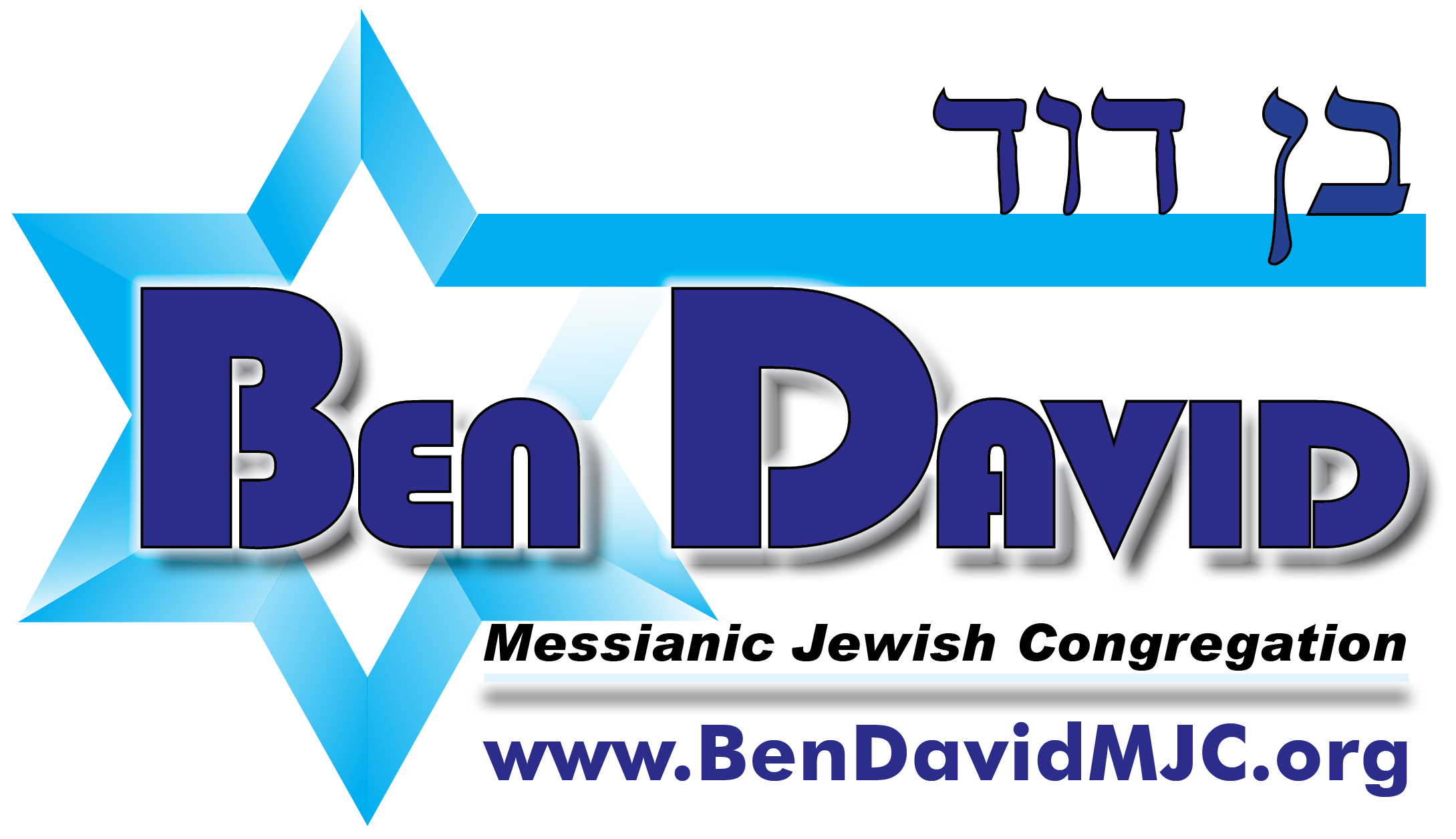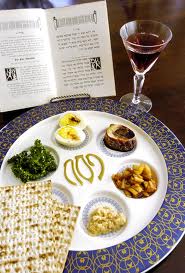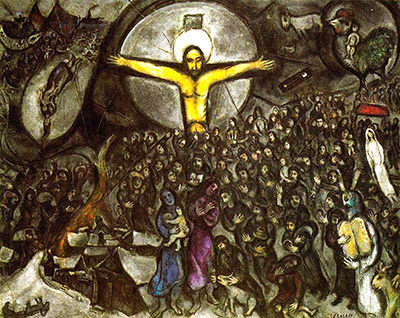Torah: VaYikra 6:1 — 8:36; Haftarah Shabbat HaGadol: Malachi 3:4-24
Shabbat HaGadol
The Shabbat which precedes Passover is called Shabbat HaGadol, the Great Shabbat, to commemorate the many miracles that God performed for the people of Israel. According to tradition, the 10th of Aviv in the year of the exodus was a Shabbat, as this year. It was considered a miracle that the Israelites could on that day select a lamb for sacrifice without being molested by their Egyptian masters who considered the lamb as a sacred animal. The lamb must be one year old to be sacrificed.
The Haftara portion of Malachi speaks of the “great and dreadful day of the LORD” on which the Messiah will appear.
This week’s Parashah continues to discuss the offerings mentioned in the previous chapters: elevation-offering, meal-offering, peace-offering, sin-offering and guilt-offering, however, this Torah portion speaks of these offerings as they relate to Aaron and his sons and adds the teachings of a new offering, the inauguration-offering. Every offering had a two-part element, one part to be a fire offering of a satisfying aroma to Yehovah, and another part to be eaten by the person who brought the offering or by the Kohanim.
Among all these offerings there was a unique one, the peace-offering. The peace-offering could have been either a thanksgiving-offering or a feast-offering. What was interesting about the thanksgiving-offering was that it had be an offering of three elements: unleavened bread, leavened bread, and a blood offering. The instruction for this thanksgiving-offering was that it must be eaten completely on the day of its offering and not leave any of it until morning.
"And this is the Torah of the sacrifice of peace offerings, which he shall offer to Yehovah. If he offers it for a thanksgiving (todah), then he shall offer with the sacrifice of thanksgiving unleavened cakes mixed with oil, and unleavened wafers anointed with oil, and cakes mixed with oil, of fine flour, fried. Besides the cakes, he shall offer for his offering leavened bread with the sacrifice of his peace offerings for thanksgiving. And from it he shall offer one out of each offering for an offering to Yehovah, and to the kohen who sprinkles the blood of the peace offerings. And the meat of the sacrifice of his peace offerings for thanksgiving shall be eaten the same day that it is offered; he shall not leave any of it until the morning." Vayikra 7:11-15
From this passage the sages taught that giving thanks to God is a daily activity; never let a day pass without giving thanks to Him. The symbolism of the two kinds of loaves is that the worshiper recognizes that he owes everything - his food and his well-being - to God, but that the unleavened bread, the matzah, symbolizes the worshiper's rededication to God, as matzah is a symbol of a life without sin. The sages also taught that after the coming of Messiah and the perfection of the world – a new heaven and a new earth – there will be no further need for atonement offerings because people will no longer sin, but that there will always be thanksgiving-offerings. People will thank God because they will realize that everything that God does is ultimately good.
PASSOVER - FEAST OF REDEMPTION
The Passover holiday occurs on the 14th day of Aviv at evening which is the beginning of the 15th day by the Jewish way of reckoning the day from sun down to sun down. The Hebrew month of Aviv is the first month of the biblical year (Deuteronomy 16:1) and means SPRING. “In the first month, on the fourteenth day of the month at dusk, it is Yehovah’s Passover. And on the fifteenth day of the same month is the Feast of Matzot - Unleavened Bread - unto Yehovah” (Leviticus 23:5). The Passover night and the Feast of Unleavened Bread are collectively known as Passover. By arrangement of the modern calendar — so all the other holy day observances do not interfere with the Shabbat, the first day of Passover, the 15th of Nisan, cannot fall on a Monday, Wednesday, or Friday. This may not have been so at the time of Yeshua. The Bible ordains seven days for the celebration of the Feast of Unleavened Bread holiday. “... for seven days you shall eat unleavened bread” (Leviticus 23:6). Custom and tradition have added an eighth day.
Passover Terms:
— FAST OF THE FIRST BORN - The Hebrew name for this custom is TAANITH B'CHORIM. It is a reminder of the plague that killed the firstborn of the Egyptians; thus, it is customary for the first born to fast on the day preceding the Passover.
— EREV PESACH / THE EVE OF PASSOVER - On the evening of the 14th day of Nisan a Seder or Passover meal is held, during which the story of the Passover is narrated. The blessing of the candles and the Kiddush prayer begin the Seder service.
— PASSOVER - On the eve of the Exodus the homes of the Israelites had blood smeared on their doorposts. The blood was from the Paschal lamb that God had instructed them to sacrifice. "And when your children will say to you: 'What do you mean by this service?” that you shall say: “It is the Passover sacrifice to Yehovah, for that He passed over the houses of the children of Israel in Egypt'” (Exodus 12:26).
— HAG HA-MATZOT / FEAST OF UNLEAVENED BREAD - This name is taken from the commandment to eat Matzah during the festival in memory of Israel’s redemption from slavery and their hasty departure from Egypt which made it impossible to bake bread from leavened dough. “And you shall observe the feast of unleavened bread . . . Seven days shall you eat unleavened bread” (Exodus 12:15). Traditionally, the first two days and the last two days of the holiday are observed as full holidays, with appropriate synagogue services, when no work of any nature is permitted. The intermediary days of Passover are considered half holidays, called Chol haMoed, and have no restriction as to work. The Bible assigns only the first and the seventh days as holy convocations, “In the first day you shall have a holy convocation; you shall do no manner of work... In the seventh day is a holy convocation; you shall do no manner of servile work” (Leviticus 23:7-8).
— COUNTING OF THE OMER - The custom of Y’MAI HA-SEFIRAH - THE DAYS OF COUNTING THE OMER begins on the second night of the festival. “And you shall count from the next day after the Shabbat (interpreted to be the Passover), from the day that you brought the sheaf of the wave offering; seven complete Shabbats” (Leviticus 23:15). The OMER - MEASURE was an offering from the new harvest of barley, which the people were commanded to bring to the Temple. The counting was to continue for forty-nine days culminating with the Shavuot festival and the wheat harvest.
— HAZKARAT NESHAMOTH / REMEMBRANCE OF THE DEAD - This memorial service is also called YIZKOR - HE SHALL REMEMBER, honoring the dead. These special prayers are recited on the eight day of the holiday, but it is not biblically ordained.
— PESACH SHEINI / SECOND PASSOVER - If for health or traveling reasons one did not keep the Passover on the first month of the Biblical year, the month of Aviv, God gives another chance to celebrate the Feast on the second month, the month of Iyar. But the commandment is for Passover only and not for Hag HaMatzot, the Feast of Unleavened Bread. Therefore, on this holiday one eats matzah for just one day. For the rest who kept the Passover on the first month, it is customary to eat some matzah on this day of the second month. Numbers 9:10-12: “Speak to the people of Israel, saying, ‘If any man of you or of your posterity shall be unclean because of a dead body, or is in a journey far away, he shall still keep the Passover to the Lord. The fourteenth day of the second month at evening they shall keep it, and eat it with unleavened bread and bitter herbs.’”
Customs for Passover:
Preparation for Passover began in the preceding month of Adar when select portions of the Bible were read in the synagogue calling attention to the coming holiday. The injunction against the possession of leaven made it incumbent upon every Jewish family to undergo a thorough home-cleaning prior to the festival. Not only was this done to remove all traces of CHOMETZ - LEAVEN, but also to add a spirit of freshness and festivity to the home. Special attention was given to the kitchen and pantries that harbored leaven.
The Search for Leaven - BEDIKAT CHOMETZ - takes place on the night before Erev Pesach. To comply with the Torah command that no leaven should be found in the house, a search for crumbs is performed by candlelight. A few are purposely scattered so that the commandment could be carried out especially by the children. Before noon on the day before Passover, a ceremony is performed called BIUR CHOMETZ - Burning of the Leaven. In this ceremony the crumbs gathered the previous night are burned, to indicate that there is no more leaven in the house. The Selling of Leaven - Called MECHIRAT CHOMETZ - made it possible to sell supplies of leavened food to a non-Jew until the holiday was concluded. The food could then be repurchased and used.
All kitchen supplies used during the year were to be put away until the Passover festival was concluded. In their place, new dishes, or those kept exclusively for Passover purposes, are used. Silverware and other metal utensils used during the year could be used provided they are properly cleaned or kashered, i.e., made correct for usage. This could be done by placing the silver in a container and allowing it to boil in hot water. Passover Food - Leavened food or CHOMETZ - is distinguished from unleavened food - MATZOT - by its method of preparation. Food that is allowed to ferment is leavened and applies to bread and foodstuff made from the following species of grain: barley, wheat, rye, oats, and spelt. No leavening agent may be used in baking. Foods marked KOSHER SHEL PESACH - PROPER FOR PASSOVER are permitted for Passover use, since they are prepared under the supervision and sanction of rabbis and comply with the laws of Kashruth. The official in charge of such supervision is called a MASHGIACH - OVERSEER.
Let's search for chometz in our lives, let's clean our hearts and be clean, and may this Passover feast be celebrated with a true Messianic spirit and joy.
Shabbat Shalom.



